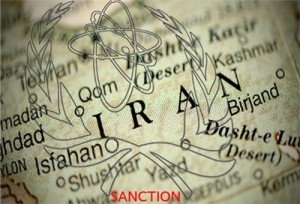 When it comes to U.S. sanctions on Iran, no detail is too small to overlook these days. Since February, publicly traded companies have filed nearly 500 disclosure forms about their business ties to Iran. The disclosures included hotel bills, Costco memberships and a few dollars collected for ATM transaction fees.
When it comes to U.S. sanctions on Iran, no detail is too small to overlook these days. Since February, publicly traded companies have filed nearly 500 disclosure forms about their business ties to Iran. The disclosures included hotel bills, Costco memberships and a few dollars collected for ATM transaction fees.The recent six-month deal with Iran over its nuclear program holds out the promise of a modest relaxation of international sanctions, but there is no letup in the new requirement that companies whose stock trades on U.S. exchanges keep track of even the tiniest interactions with the Islamic republic. And as Congress threatens to undercut the nuclear deal with even tougher sanctions, companies are scrambling to document virtually every Iranian encounter.
Corporations can quickly rack up millions of dollars in fines if they violate trade sanctions, and the dollar amount can climb higher if the activity is not properly disclosed. Perhaps more alarming to firms are the reputational and legal risks they face if they fail to report the business ties, including potential lawsuits from disgruntled investors.
�It�s statutes like these that strike fear in the hearts of companies,� said Jacob S. Frenkel, a former Securities and Exchange Commission enforcement lawyer who is now at Shulman Rogers. �The concern is about the consequence of not disclosing or disclosing too little.�
So most companies aren�t taking any chances.
Costco, the huge members-only retailer, reported that its subsidiary in Japan had four cardholders on two business memberships in the name of the Embassy of the Islamic Republic of Iran earlier this year. Another subsidiary in Britain granted one membership, shared by two people, in the name of Iran Air.
Costco canceled the memberships after netting less than $170 in profits.
Citibank disclosed that its branch in Bahrain made $4 in profit in the second quarter by processing ATM transactions involving Future Bank, a joint venture whose owners include two Iranian-linked banks barred from doing business with U.S. companies.
Not all of the disclosures are trivial. On Nov. 27, for example, Siemens reported that a French affiliate had fixed a smoke alarm on an Iranian passenger plane � butalso disclosed�that it sold 23 diesel electric locomotives worth $56 million to an Iranian firm that resold them to the state-owned railway.
On Nov. 8, banking giant�UBS said�it had arranged trade financing for Swiss exporters involving four Iranian banks allegedly taking part in deals related to weapons of mass destruction. The bank said in its public filing that there had been no transactions since February 2012 but that it still maintained �one existing account relationship� with one of the Iranian banks.
By The Washington Post
The Iran Project is not responsible for the content of quoted articles.










